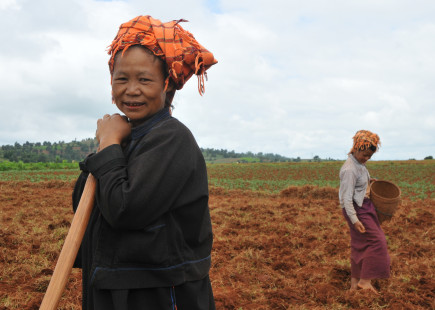Ideas into movement
Boost TNI's work
50 years. Hundreds of social struggles. Countless ideas turned into movement.
Support us as we celebrate our 50th anniversary in 2024.

Shifting cultivation is a form of agro-forestry in which the cultivation of annual agricultural crops is combined with fallowing long enough for trees to grow before the plot is cultivated again. Why is shifting cultivation so controversial, and why do different stakeholders hold such divergent views - for some a valuable and honourable tradition but for others virtually a criminal activity?


Tom Kramer
Shifting cultivation is a form of agro-forestry in which the cultivation of annual agricultural crops is combined with fallowing long enough for trees to grow before the plot is cultivated again. It is popular and widespread around the world. In Myanmar millions of rural working people have practiced shifting cultivation as their major livelihood activity for generations. Today, it continues to provide food security for families and communities in many parts of the country and is valued as a central part of their cultural heritage.
However, since the 19th century some governments have come to view shifting cultivation as inferior to their preferred form of farming – sedentary cultivation. From this perspective, shifting cultivation is portrayed as a ‘bad’ thing and a problem to be eradicated. Shifting cultivation is often framed as a major cause of deforestation and shifting cultivator’s fallow lands are frequently labelled as ‘degraded forest’ or even ‘vacant land’ and appropriated by the state, sometimes then handed on to others to use. These actions have led to poverty, grievance and conflicts across many shifting cultivation areas.
Why is shifting cultivation so controversial, and why do different stakeholders hold such divergent views - for some a valuable and honourable tradition but for others virtually a criminal activity?
In this primer we explore the issues and consider how the Myanmar government might better represent the legitimate aspirations of the millions of shifting cultivators, particularly in the context of the peace process and political devolution. We reach five main conclusions and recommendations: